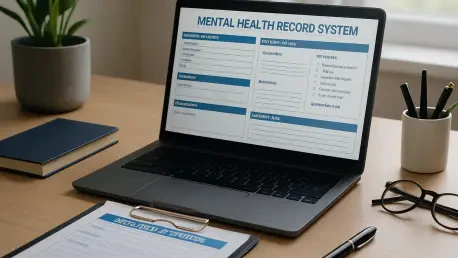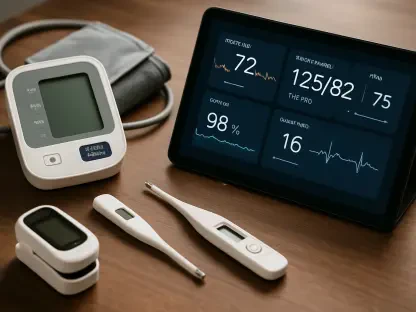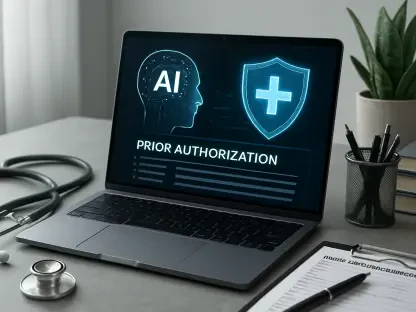In a groundbreaking move to transform mental health services, New York State has committed an impressive $218 million to develop a state-of-the-art electronic health record (EHR) system. This substantial investment, announced by Governor Kathy Hochul, is set to overhaul the way mental health care is delivered across a vast network of facilities. Managed by the State Office of Mental Health (OMH), the initiative will impact 24 inpatient psychiatric centers, two research institutions, and over 300 outpatient programs. By partnering with Oracle Health, the state aims to create a unified platform that enhances patient care through improved data access and operational efficiency. This ambitious project addresses long-standing challenges in the mental health system, promising to streamline processes and ensure that patients receive consistent, high-quality treatment. As technology continues to reshape healthcare, this endeavor positions New York as a leader in leveraging digital solutions to tackle critical public health needs.
Addressing Outdated Systems with Modern Solutions
The current mental health record systems in New York State have been a significant barrier to effective care, with many platforms dating back over two decades and lacking the ability to integrate seamlessly. These outdated, fragmented systems often result in disjointed communication between facilities, leading to inefficiencies and potential lapses in patient treatment. The new EHR system, backed by a $218 million investment, seeks to replace dozens of disparate applications with a single, cohesive platform. This unified approach will standardize data across OMH facilities, ensuring that patient information is accurate and accessible. Moreover, it will align with national and industry standards for behavioral health, enhancing compliance and reliability. By consolidating records into a centralized repository, the initiative aims to eliminate redundancies and foster better coordination among clinicians, ultimately improving the quality of care provided to thousands of New Yorkers seeking mental health support.
Beyond replacing old technology, the focus of this initiative is to streamline both clinical and administrative workflows within the mental health system. A centralized EHR platform will reduce the time spent on manual data entry and cross-referencing between incompatible systems, allowing staff to prioritize patient interaction over paperwork. This shift is expected to mitigate errors that arise from fragmented data, such as incomplete medical histories or missed treatment updates. Additionally, the system will enhance data security measures to protect sensitive patient information, a critical concern in healthcare. The ability to share information securely with other providers when necessary will also improve collaboration across different care settings. With these advancements, the state is poised to create a more efficient framework that not only supports healthcare professionals in their daily tasks but also ensures that patients experience a smoother, more integrated journey through the mental health care system.
Enhancing Patient Care and Safety
One of the cornerstone goals of the new EHR system is to elevate the patient experience by ensuring that clinicians have immediate access to comprehensive, up-to-date information. When patient data is housed in a single application, healthcare providers can make more informed decisions quickly, which is often crucial in mental health scenarios where timely interventions can make a significant difference. This accessibility will minimize delays in care delivery and reduce the risk of oversight due to missing or outdated records. Furthermore, patients themselves will benefit from improved communication between care settings, as their treatment history and needs can be easily tracked and shared. The result is a more responsive mental health framework that prioritizes individual well-being while fostering trust between patients and providers through consistent and accurate care management.
In addition to improving access to information, the EHR system is designed to alleviate the administrative burdens that often weigh heavily on mental health professionals. By automating routine tasks and simplifying data retrieval, staff will have more time to focus on direct patient care rather than navigating complex, outdated systems. This shift is expected to enhance job satisfaction among clinicians and support staff, potentially reducing burnout in a field known for high stress. The system will also bolster safeguards around patient data, ensuring privacy while enabling necessary information sharing with external healthcare entities. As a result, the initiative promises to create a safer, more cohesive environment where patient safety is paramount, and operational hiccups are minimized. This comprehensive approach underscores New York’s commitment to modernizing mental health services in a way that benefits all stakeholders involved.
Scope and Implementation Timeline
The rollout of the new EHR system is an expansive undertaking, projected to span approximately 29 months and support around 12,000 users across various functions. This includes a broad spectrum of services such as inpatient psychiatric care, outpatient clinics, day treatment programs, Assertive Community Treatment teams, residential services, and even correction-based operations. The sheer scale of this project highlights the state’s dedication to ensuring that no corner of the mental health system is left behind in the push for modernization. By encompassing both clinical and business operations, the initiative will address diverse needs within the OMH network, creating a seamless experience for users at every level. This wide-reaching implementation is a testament to the state’s recognition that comprehensive technological upgrades are essential for delivering equitable, high-quality care across all settings.
Throughout the implementation phase, careful planning and coordination will be critical to ensure a smooth transition for the thousands of users who will rely on the new system. The partnership with Oracle Health brings expertise in large-scale EHR deployments, which will be vital for meeting the unique challenges of mental health data management. Training and support for staff will play a pivotal role in minimizing disruptions during the rollout, ensuring that clinicians and administrators can adapt to the new tools effectively. The timeline also allows for thorough testing and refinement of the system to address any issues before full deployment. As this process unfolds, the state aims to maintain transparency with stakeholders, keeping them informed of progress and potential impacts. This meticulous approach to implementation reflects a broader goal of building a reliable, user-friendly platform that will serve as a cornerstone for mental health care delivery in New York for years to come.
Voices of Support and Future Impact
State officials and key stakeholders have expressed strong enthusiasm for the transformative potential of this $218 million investment. Governor Kathy Hochul has highlighted how critical accessible health records are for guiding effective mental health treatment, emphasizing that the system will vastly improve patient experiences. OMH Commissioner Dr. Ann Sullivan has also noted that this project reflects a deep commitment to equipping healthcare professionals with reliable tools to enhance care delivery. Additionally, New York State Chief Information Officer Dru Rai pointed to the importance of technological partnerships in achieving such mission-critical goals, while Oracle Health’s Seema Verma stressed the value of a unified data system in supporting long-term mental health journeys. These unified voices underscore a shared belief in the power of technology to address systemic challenges and improve outcomes for vulnerable populations.
Looking at the broader implications, this initiative marks a significant step toward modernizing mental health care through integration and accessibility. By tackling the inefficiencies of outdated systems, New York sets a powerful example for how states can leverage technology to enhance public health services. The focus on data security and continuity of care addresses pressing needs in behavioral health, where understanding a patient’s full history is often key to effective treatment. As the project progresses, it becomes clear that the collaborative efforts between state agencies and technology partners have laid a strong foundation for future innovations. The successful implementation of this system promises to inspire similar advancements in other regions, demonstrating that strategic investments in digital infrastructure can yield lasting benefits for mental health care delivery on a national scale.









